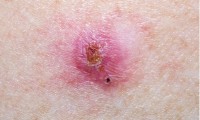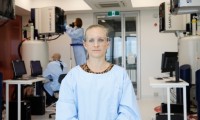-
Depression Trial Win Moves Intra-Cellular Drug Closer to Label Expansion & Blockbuster Status
- Source: drugdu
- 295
- April 18, 2024
-
Deep Learning Powered AI Algorithms Improve Skin Cancer Diagnostic Accuracy
- Source: drugdu
- 387
- April 18, 2024
-
Blood-Based Test Detects and Monitors Aggressive Small Cell Lung Cancer
- Source: drugdu
- 302
- April 18, 2024
-
Bio-Rad and Oncocyte partner to develop and commercialise transplant monitoring products
- Source: drugdu
- 403
- April 18, 2024
-
UCL study reveals carbon beads could help reduce progression of liver disease
- Source: drugdu
- 389
- April 18, 2024
-
Jardiance and Ofev propel Boehringer’s human pharma sales
- Source: drugdu
- 451
- April 18, 2024
-
Kind Pharmaceuticals Announces Settlement
- Source: drugdu
- 239
- April 18, 2024
-
Abbott’s latest Heartmate recall tied to 273 injuries, 14 deaths
- Source: drugdu
- 489
- April 17, 2024
-
Unique Metabolic Signature Could Enable Sepsis Diagnosis within One Hour of Blood Collection
- Source: drugdu
- 415
- April 17, 2024
-
DeepScribe Brings Ambient AI to AWS Marketplace
- Source: drugdu
- 382
- April 17, 2024
your submission has already been received.
OK
Subscribe
Please enter a valid Email address!
Submit
The most relevant industry news & insight will be sent to you every two weeks.

















